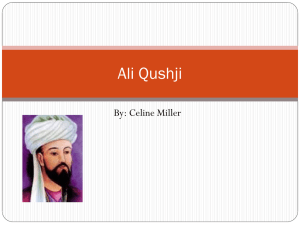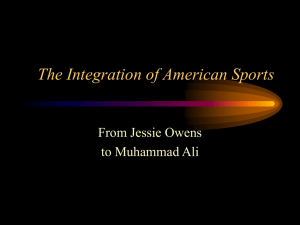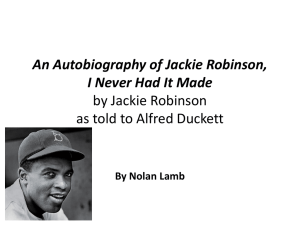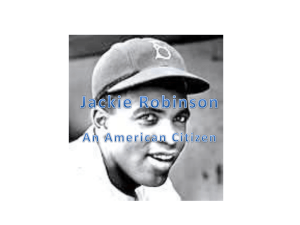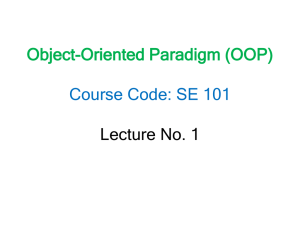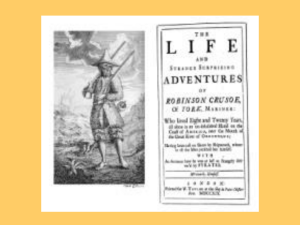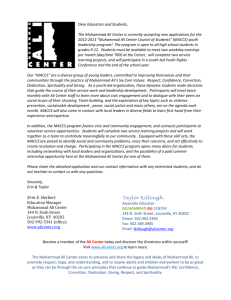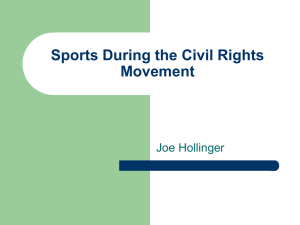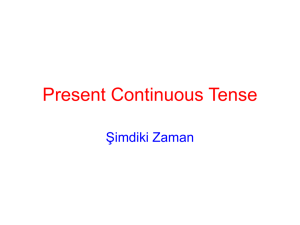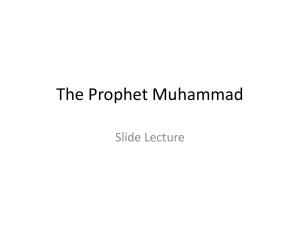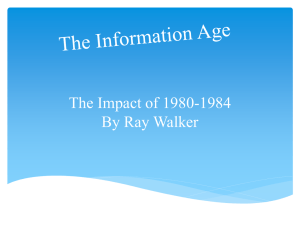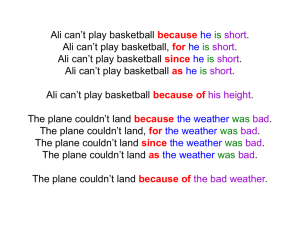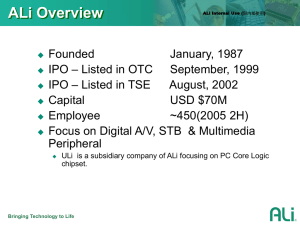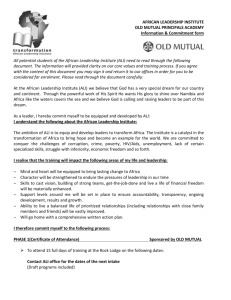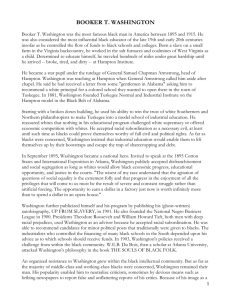Muhammad Ali & Jackie Robinson
advertisement
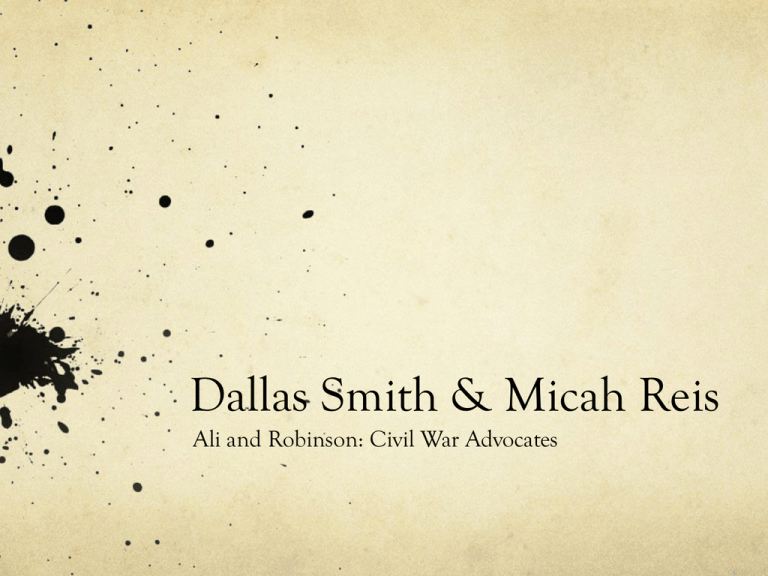
Dallas Smith & Micah Reis Ali and Robinson: Civil War Advocates Muhammad Ali & Jackie Robinson MLK Jr. (Left) & Jackie Robinson (Right) Muhammad Ali showing an article on the fight against racial discrimination Ali & The Civil Right Movements Muhammad Ali continued to be not only a fighter in the ring but a fighter for civil rights as well. So, during the civil rights movement Ali found himself defending his new name and battling issues of race and class. He became a known icon in the struggle for civil rights. Ali’s support The racial injustices of segregation, and the bigotry and prejudice of the times made the Black Muslim movement a means of positive Black expression. Ali supported the fight against black oppression 100%. Ali defending him, and his people. During the civil rights movement Ali found himself defending his new name and battling issues of race and class. He became a known icon in the struggle for civil rights. Ali refuses draft In 1964, He refused to serve in the United States Army during the Vietnam War as a conscientious objector, because "War is against the teachings of the Holy Qur'an. I'm not trying to dodge the draft. We are not supposed to take part in no wars unless declared by Allah or The Messenger. We don't take part in Christian wars or wars of any unbelievers. Jackie Robinson He was the first black man to "officially" play in the big leagues in the 20th century, possessed enormous physical talent and a fierce determination to succeed. In the course of a distinguished 10-year career beginning in 1947, Robinson led the Brooklyn Dodgers to six National League titles and one victorious World Series. http://www.archives.gov/educati on/lessons/jackierobinson/images/telegram1957.jpg Robinson’s telegram Jackie Robinson sent this message to Presidential assistant E. Frederick Morrow in August 1957 as the first civil rights legislation since Reconstruction was being negotiated between Congress and the Eisenhower administration. Letter to Kennedy During the 1960 Presidential campaign an angry exchange occurred between JFK's brother Bobby Kennedy and Robinson after it became clear the latter would not support John Kennedy for election. Robinson’s final letter to the White House Failing health contributed to the pessimistic tone of this letter to Presidential assistant Roland L. Elliott http://www.archives.gov/education/lessons/jackierobinson/images/letter-1972.jpg Robinson’s Death The increase of violence on all sides, and the growing violence of the civil rights movement , made him fear that blood would be shed between the races. He died at the age of 53, scarcely 6 months after writing this letter. Works Cited: "Teaching With Documents:Beyond the Playing Field Jackie Robinson, Civil Rights Advocate." Jackie Robinson, Civil Rights Advocate. Web. 20 Apr. 2012. <http://www.archives.gov/education/lessons/jackierobinson/>. "Muhammad Ali Biography." Biography Online. Web. 20 Apr. 2012. <http://www.biographyonline.net/sport/muhammad_ ali.html>. Waters, Trinity. "Muhammad Ali and the Civil Rights Movement." Helium. Helium, 21 Jan. 2008. Web. 20 Apr. 2012. <http://www.helium.com/items/810842muhammad-ali-and-the-civil-rights-movement>.
